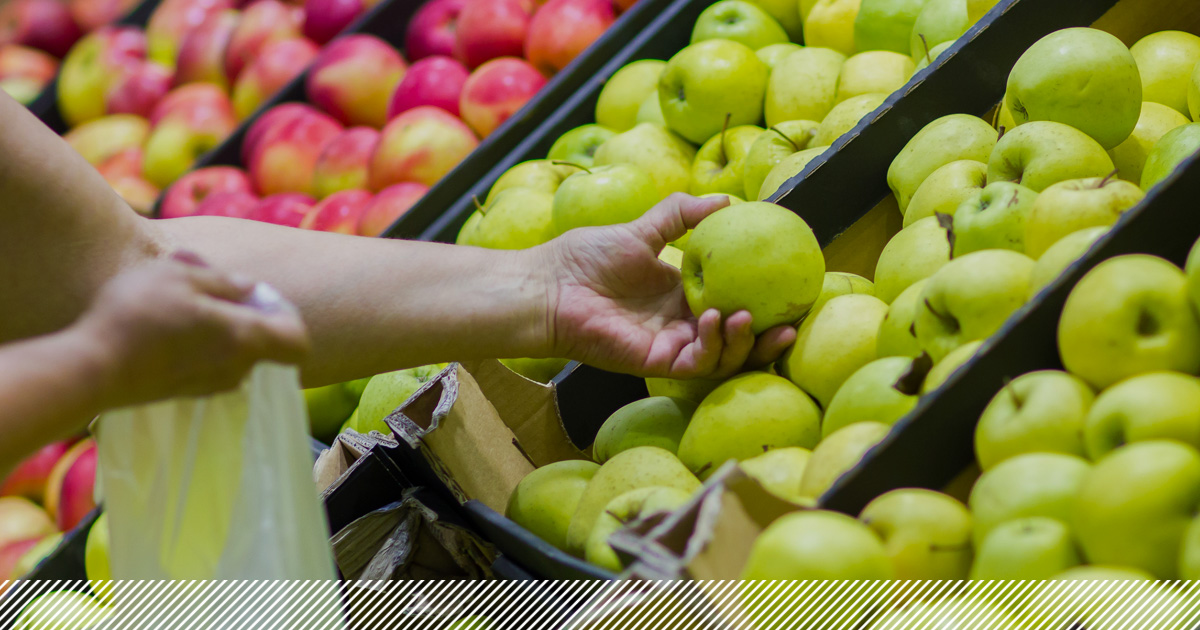COVID-19 changes consumer attitudes toward food waste

A new report from the UK's Waste Resources Action Programme (WRAP) shows consumers are increasingly concerned about food waste as the COVID-19 crisis has led to a greater value placed on food.
The WRAP report, "Citizen responses to the COVID-19 lockdown–food purchasing, management and waste," gives insight into how consumers are changing their behavior to waste less food. Not surprisingly, consumer shopping patterns have changed. Survey respondents are shopping less often, but they are buying more per trip. They are also doing more planning regarding food–making lists before shopping, focusing more on proper storage, and seeking creative ways to utilize leftovers.
These behaviors are having a positive impact regarding waste levels. Fully 36 percent of respondents noted that they are discarding less food now than in the past, while only 4 percent are discarding more. In addition, the average level of waste across four key products (bread, milk, potatoes, and chicken) declined by 34 percent from the comparable 2018-19 figure.
On a further positive note, consumer attitudes are changing to reflect a more responsible nature. WRAP reported that 87 percent of respondents either “strongly agree” or “tend to agree” that food waste is an important national issue. Similarly, 93 percent “strongly agree” or “tend to agree” with the statement “Everyone, including me, has a responsibility to minimize the food they throw away.”
COVID-19 made the food waste crisis worse
As we know, the level of food loss and waste occurring annually, ranging from a third to half of global production, was already far too high prior to COVID-19. And yet one of the early, devastating consequences of the virus was to increase food loss and waste even further throughout the world’s food supply chains.
With restaurant and foodservice markets largely shut down and workers and transportation systems idled, producers without the ability to shift to retail markets have been forced to discard tons of food worldwide–with dairy farmers dumping milk, farmers plowing crops back into the soil, eggs being destroyed, and chickens being euthanized, to name a few examples.
When it comes to food, the pandemic has, in many ways, created this generation’s Great Depression moment. We often cite the culture of responsibility around food that existed in the Depression era, when consumers were extremely frugal with food resources by necessity. Over the last several decades, global food waste levels have ballooned–driven by the emergence of a culture of abundance around food in developed countries. Plentiful access to food from all over the world at relatively low cost has led to a general erosion of the value consumers place on food resources.
Significantly, the COVID-19 crisis has quickly forced consumers to reassess the value of food. Shortages and panic buying in the early weeks of the crisis reflected that reassessment. Broadly, consumers are now cooking more, and wasting less, largely by necessity as they seek to stretch their food resources as far as possible. In short, many are now valuing food to a greater degree.
WRAP is understandably excited about its findings, feeling that “the foundations for stronger food management behaviors” have emerged as a result of the COVID-generated lockdown. Indeed, the WRAP team sees this as a “watershed moment” and intends to pull together stakeholders from all sectors of the food system to amplify the positive results.
Culture of abundance, or culture of responsibility?
Let’s hope that one positive from COVID-19 is that it tilts us toward the latter, because like never before, food is too precious to waste.
Sign up for our monthly newsletter for the latest in
food waste prevention initiatives, best practices, webinars and more.
